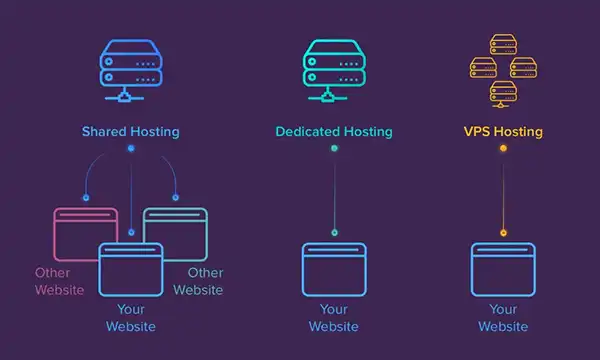SEO Strategies for Shared Hosting
Ad
When it comes to building your online presence, search engine optimization (SEO) is key to attracting organic traffic to your website.
If your website uses shared hosting, implementing an effective SEO strategy is critical to ensuring that your website ranks well on search engine results pages.
Here are some SEO strategies tailored specifically for shared hosting environments:
Ad
1. Optimize Website Speed
Shared hosting involves multiple websites sharing the same server resources. To improve user experience and SEO ranking, optimizing your website loading speed is crucial. Compress images, minify CSS and JavaScript files, and take advantage of browser caching to reduce load times. Google considers site speed a ranking factor, so faster sites lead to higher search results.
2. Choose SEO-Friendly Themes and Plugins
When choosing a theme and plugins for your website, choose the ones that are optimized for speed and SEO. Bloated or poorly coded themes and plugins can slow down your website and negatively impact your SEO efforts. Choose from lightweight, responsive, and SEO-friendly options to boost your website’s performance.
Ad
3. Prioritize Mobile Responsiveness
Because most online searches are now done on mobile devices, Google prioritizes mobile-responsive websites in its search results. Make sure your website design is mobile-friendly and that all elements are easily accessible and usable on different screen sizes.
4. Keyword Research and Optimization
Research keywords related to your niche and incorporate them naturally into your website content. However, be careful not to stuff keywords as this can lead to fines. Focus on creating high-quality, informative, and engaging content that meets user search intent.
See Too:
5. Update the Content Regularly
Regularly updating your website with new, valuable content helps search engines see that your website is active and relevant. This can have a positive impact on your search results. Consider creating a blog section where you can post informative articles, industry news, and tips related to your niche.
6. Make use of Local SEO
If your website serves a specific geographic area, take advantage of local SEO strategies. Include your business location in content, meta descriptions, and title tags. Create a Google My Business profile and encourage customers to leave reviews. This can significantly increase your visibility in local search results.
7. Build Quality Backlinks
Backlinks from reputable, relevant sites can improve your site’s authority and SEO ranking. Participate in ethical link building practices by posting to authoritative sites, participating in industry forums, and collaborating with influencers.
8. Monitor and Analyze Performance
Regularly check website performance using tools such as Google Analytics and Google Search Console. Analyze key metrics like traffic sources, bounce rate, and keyword ranking. Use this data to identify areas for improvement and adjust your SEO strategy accordingly.
9. Optimize Images for SEO
Images play an important role in improving the visual appeal of your website, but they can also affect your site’s performance if they aren’t optimized properly. Compress images without sacrificing image quality to reduce loading times. Use descriptive file names and alt text for images, and use relevant keywords where appropriate. Not only does this improve accessibility for visually impaired users, it also gives search engines more context about your content.
10. Implement on-page SEO Techniques
On-page SEO involves optimizing individual web pages to improve their rankings in search engines. This includes optimizing title tags, meta descriptions, and title tags. Each page should have a unique and descriptive title tag containing relevant keywords. Meta descriptions should be compelling and accurately reflect the content of the page as it often appears in search results.
11. Create an XML Sitemap
An XML sitemap is a file that lists all the pages of a website and helps search engines understand its structure and content. By creating an XML sitemap and submitting it to search engines like Google, you can index your site pages faster. This ensures that your content is discovered and displayed in search results in a timely manner.
12. Engage with Social Media
While social media signals may not directly impact search results, they can contribute indirectly by increasing traffic and brand awareness. Share your content on social media platforms to encourage engagement, shares, and backlinks. Connecting with audiences on social media can also increase brand awareness and potential opportunities to build natural links.
13. Secure your Website with HTTPS
Website security is a top priority for users and search engines. Google considers HTTPS (Secure Website) as a ranking factor, and visitors are more likely to trust and interact with a secure website. Get an SSL certificate to encrypt the data sent between your website and visitors, and make sure your website’s URL starts with “https://” instead of “http://”.
14. Use Title Tags Properly
Heading tags (H1, H2, H3, etc.) structure the content and provide hierarchy to page information. Proper use of header tags can make your content more readable by both users and search engines. Use H1 tags for main headings and include relevant keywords, while H2 and H3 tags can be used for subheadings and subsections.
15. Avoid Duplicate Content
Duplicate content can confuse search engines and weaken a site’s SEO efforts. Make sure every page on your website offers unique and valuable content. If similar content appears on multiple URLs, use the canonical tag to indicate the preferred version of the page.
Conclusion
In the dynamic world of shared hosting, mastering an effective SEO strategy is crucial to stand out from the digital crowd. By optimizing your site for speed, applying mobile responsiveness, curating high-quality content, and implementing on-page technology, you can improve your site’s ranking in search engines.
In addition, promoting local SEO, maintaining backlinks and monitoring performance ensure continued growth. Remember that SEO is not a one-time job; it is a long-term task. It’s an ongoing journey that requires adapting to evolving algorithms and user behavior.
With careful implementation of these strategies, your shared hosting website can secure the best search results, attract organic traffic, and foster a thriving online presence. Stay engaged, stay informed and see how your website thrives in a competitive digital environment.
Frequently Asked Questions
1. Is SEO a one-time job for a shared hosting website?
No, SEO is a continuous process. Algorithms and user behavior are constantly evolving, so regularly updating content, understanding industry trends, and adjusting your strategy are critical to continued SEO success.
2. How Does Shared Hosting Affect SEO?
Shared hosting can impact SEO due to resource sharing. If a website on one server experiences heavy traffic or performance issues, it may indirectly affect other websites on the same server. However, an effective SEO strategy can mitigate these effects.
3. Why is site speed important for SEO on shared hosting?
Site speed is a Google ranking factor and influences the user experience. With shared hosting, optimizing speed is critical to balance potential resource constraints and deliver a better user experience, resulting in higher SEO rankings.
4. How do I optimize images for SEO on shared hosting?
To optimize images, compress them without losing quality, use descriptive file names, and add alt text with relevant keywords. Optimized images increase site speed and provide search engines with additional context.
5. Is mobile responsiveness critical to SEO on shared hosting?
Yes, mobile responsiveness is critical. Google prioritizes mobile-friendly sites in search results, and shared hosting should ensure that the site design works well across devices.
 Optimizing Website Performance on Shared Hosting
Optimizing Website Performance on Shared Hosting
Ad In today’s digital age, having a fast and responsive website is crucial to attracting and retaining […]
More Managed vs. Unmanaged Shared Hosting
Managed vs. Unmanaged Shared Hosting
Ad When launching a website, choosing the right hosting plan is a critical decision that can significantly […]
More Shared Hosting for E-Commerce: Finding the Perfect Balance
Shared Hosting for E-Commerce: Finding the Perfect Balance
Ad In the ever-evolving world of e-commerce, creating and maintaining an online presence is crucial. When it […]
More